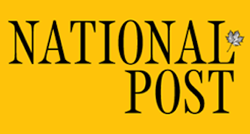 |
 |
![]()
|
Archives |
|
|
The Queen of Scots?
On the eve of the vote on Scottish independence, the National Post published my analysis of the Queen's contrasting roles in the Canadian and British referenda campaigns, and what this reveals about the nature of the Crown across the Commonwealth. * * * With polls suggesting a nail-biting finish to the referendum on Scottish independence tomorrow, it is unsurprising that so many Westminster MPs pleaded for the Queen to make a clear public declaration in favour of the “No” campaign. The unusually blunt response from Buckingham Palace, however, was far more intriguing, especially to Canadians. “The Monarch is above politics and those in political office have a duty to ensure that this remains the case,” came the sharp reply last week. “Any suggestion that the Queen should wish to influence the outcome of the current referendum campaign is categorically wrong.” The most she was willing to offer in this final week of the campaign was a studiously neutral expression of hope that, “people will think very carefully about the future,” before casting their ballots. But she pointedly declined to say which version of the future she supports. As Britain’s Head of Government, David Cameron could still constitutionally advise – essentially require – the Queen to deliver an unambiguous endorsement of the union, but for him to do so now would be counterproductive. It would be obvious to any audience that the Queen’s words were not her own, and those Scots who most support the monarchy might turn against the cause of a Prime Minister who appeared ready to coerce their Queen into acting against her judgement. That the Queen has effectively out-manoeuvred a Prime Minister is neither rare nor unamusing. But that she has done so on the subject of a referendum on secession reveals the tensions underlying her office across the Commonwealth realms. Not so long ago, the Queen spoke with “her Prime Minister” on the very subject of taking a hand in his referendum campaign. The contents of the surreptitiously recorded telephone call stand in stark contrast to the palace’s recent pronouncements. “Our latest polls are showing that the separatists are going to win the referendum,” he said to her. “…But we still have some hope, because there is still a large number of undecided voters. We deeply believe that should your Majesty have the kindness to make a public intervention, we think that your words could give back to the citizens…the pride of being members of a united country.” He concluded by asking directly, “Do you think you can tell that on national television?” The Queen took a moment away from the call to consult with one of her advisors, identified only as “Robert”, on another line. She returned to ask for the text of a statement for her review, but she offered reassuringly, “I would probably be able to do something for you. No problem, no. I can do that.” The Queen believed that she was speaking with Jean Chrétien, shortly before Canada’s 1995 referendum on Quebec secession. In fact, she was speaking with an impostor, a radio disc jockey who had managed to circumvent Buckingham Palace’s security measures, and who continued the conversation by peppering the Queen with questions about what she and her family planned to wear for Hallowe’en. In Britain, the palace dismissed the incident as “irritating and regrettable”, while in Canada, it was quickly forgotten amidst the tumult of the last days of the referendum campaign. But in retrospect, the incident raises the intriguing question of why the palace was willing to have the Queen influence our referendum, but has been adamant that she remain neutral in Britain’s referendum. My sense is that the palace likely understands that the Crown’s obligations to an independent Scotland would be radically different from its obligations to an independent Quebec. Scotland’s First Minister has declared that an independent Scotland would retain the Queen as its Head of State, whereas it was inconceivable that an independent Quebec would have done likewise. As a result, the Queen is duty-bound to weigh her actual responsibilities to the existing United Kingdom against her possible responsibilities to a future Kingdom of Scotland; she needed to make no such calculations with Canada and Quebec. This precarious balancing act is an inevitable consequence of a single person serving as the Head of State for multiple sovereign countries, and it is remarkable that the institution of the Crown has been able to preserve its transnational equilibrium since the disintegration of the British Empire. In 1947, George VI, Emperor of India, was at war with George VI, King of Pakistan, while George VI, King of Canada, urged both sides to accept a UN mandated ceasefire, and George VI, King of the United Kingdom, made it clear that his troops would not become involved. If Scotland were to vote for independence tomorrow, Elizabeth II, Queen of the United Kingdom of Southern Britain and Northern Ireland, and Elizabeth I, Queen of Scots, would have to similarly come to an understanding on a great many issues. Doubtlessly, however, she would have a gentler time of it. |
|
|
|
|
|
|
|
Remembering Desmond Tutu |
|
|
My article in the Globe and Mail |
|
TVOntario’s The Agenda |
|
|
Reflecting on the life of Queen Elizabeth II |
|
United Nations |
|
|
My address in the UN General Assembly Chamber |
|
CBC Radio’s The House |
|
|
The dirt on the federal two billion trees programme |
|
|
|


